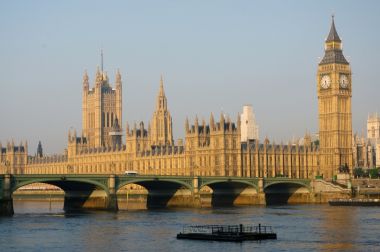Unwrapping the election: Why Anglicans vote Tory and Baptists vote Labour

The latest tranche of post-election data released by the British Election Survey shows strong support for the Conservative Party among Anglicans and Methodists, while Baptists and other Christians are more likely to vote Labour. Support for Labour was particularly strong among Roman Catholics, at 41 per cent against only 30 per cent voting Conservative.
Analysis by Dr Ben Clements for the British Religion in Numbers website showed that votes for the United Kingdom Independence Party were more prevalent amongst Anglicans, Catholics and those in the unspecified other religion category. Voting for the Liberal Democrats was most likely among Methodists and Baptists.
A massive 72 per cent of Muslims supported Labour compared with only 15 for the Conservatives; among Jews the balance was the other way, with 50 per cent voting Conservative and only 29 per cent Labour.
Anglicans voted Conservative by 46 per cent, against 30 per cent for Labour; Conservative Methodist voters also outnumbered Labour voters considerably at 39 per cent to 33, belying the denomination's left-wing image. Both Baptists and Methodists showed relatively strong Liberal Democrat support at 14 and 13 per cent; Baptists tended to vote Labour over Conservative, at 36 to 32 per cent.
In Scotland there was a strong preference for the Scottish National Party among all groups except Anglicans, though support even among Anglicans had risen sharply since 2010. While support for Labour dropped in Scotland compared with the 2010 elections, especially among Roman Catholics. Five years ago two-thirds of Catholics voted Labour; this year it was only a third.
In Wales, Anglicans voted almost evenly between Labour and the Conservatives at 38 and 36 per cent. In the "other religion" category, which would include traditional Nonconformists, there was a strong Labour preference at 36 per cent to 25 for the Conservatives. This group also showed the highest support for Plaid Cymru, at 15 per cent.
But why should denominational allegiance affect how someone casts their vote?
According to James Tilley, a lecturer in the Department of Politics and International Relations at Oxford University, religion is still an important predictor of party choice at elections. In an article for the London School of Economics written before the election, Tilley points to the large gap between Anglican and Catholic voting preferences as one example.
He argues that different religious voting habits are "rooted in the religious divisions of the 19th and early 20th century", when Liberals were clearly aligned with non-conformists because their education policy and the temperance movement. "Conversely, the Conservatives were seen as the party of the Church of England," he says: "The Church of England was the established church, and the Conservatives were the party of established privilege." (Methodists, often classed as Nonconformists, have a mixed spiritual ancestry with many from the Wesleyan tradition being closer to the Church of England than to Baptists and Congregationalists). Catholic support for Labour – the reverse of preferences on the Continent – was due to the influx of working class Irish immigrants and Labour support for Irish home rule, Tilley says.
He argues that the party affiliations of people's parents are crucial. "Religion maintains its link with party loyalties via parental socialisation into both a religious and party identity when children are growing up," he says. "Religious voting is thus a relic of past associations between groups and parties: religious divisions remain because religion is a marker of parents' and grandparents' party affiliation from an era when religion did matter for policy choices and for voters."
While he says that religion will play a decreasing role, he says: "Nonetheless, there is still a sizable minority of people in Britain with a religious identity (around a third of the electorate) and the divisions within that group are just as strong as they ever were."











